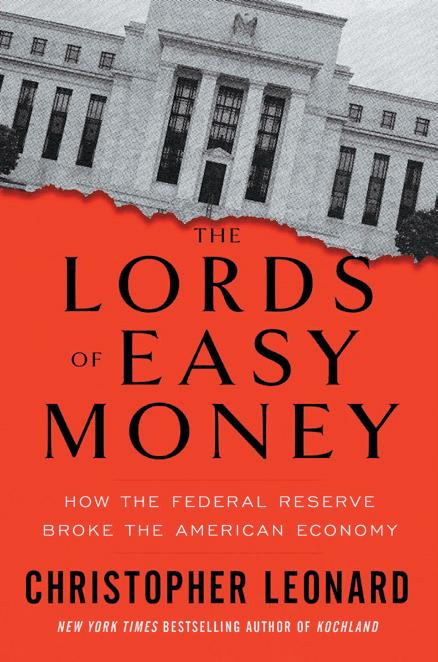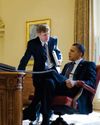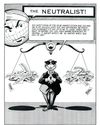Try GOLD - Free
The Everything Bubble
Reason magazine
|February 2023
How the Fed redistributed wealth upward and encouraged reckless corporate behavior

IN 2010 THOMAS Hoenig, then the president of the Federal Reserve Bank of Kansas City and a member of the central bank's Federal Open Market Committee, thought he was seeing history repeat itself.
In the early 1980s, when he was a vice president at the Kansas City Fed overseeing bank examiners, he had a front-row seat to a boom and bust in land and oil asset values, which gutted the Midwest's economy. That painful experience stemmed largely from the Fed's loose money policy in the 1970s, followed by that policy's sudden reversal. Hundreds of banks had loans that depended on soaring asset prices, and hundreds of banks failed. Hoenig was responsible for helping decide which banks would live and which would die. He saw "lives were destroyed in this environment" and "people lost everything." Remembering that experience a few decades later, Hoenig did something the collegial structure of the Federal Open Market Committee was designed to discourage: He dissented.
He began voting against the Fed's ongoing policy of quantitative easing (Q.E.)-that is, the injection of new money into the financial system by purchasing bonds from well-connected "primary dealers" on Wall Street-because he foresaw another ultimately unsupportable rise in asset values along with increasingly risky behavior by privileged market players awash in easy money.

In The Lords of Easy Money, business reporter Christopher Leonard relies on Hoenig's heretical perspective as a narrative spine for his detailed reporting on the Fed's thought and action before, during, and after the 2008 financial crisis.
This story is from the February 2023 edition of Reason magazine.
Subscribe to Magzter GOLD to access thousands of curated premium stories, and 10,000+ magazines and newspapers.
Already a subscriber? Sign In
MORE STORIES FROM Reason magazine

Reason magazine
A Nostalgic Read for Foreign Policy Elites
IF YOU WERE looking for a human avatar of America's unipolar moment, you couldn't do better than Michael McFaul. Picture a youthful, energetic McFaul with a newly minted Ph.D. bounding into the suddenly post-Soviet space of the early 1990s, full of bright ideas about democracy and faith in the end of history. As McFaul himself puts it, 1991 \"was a glorious moment to be a democratic, liberal, capitalist, multilateralist, and American....I was treated like a rockstar.\"
4 mins
January 2026

Reason magazine
TRUMP IS DEPORTING ENTREPRENEURS
THE TRUMP ADMINISTRATION'S MASS DEPORTATION EFFORT IS ROBBING THE U.S. OF IMMIGRANT BUSINESS OWNERS AND THEIR CONTRIBUTIONS.
9 mins
January 2026
Reason magazine
The First Information Revolution
PRINTING PRESSES AND LIBRARIANS INTERPRETED CENSORSHIP AS DAMAGE AND ROUTED AROUND IT.
11 mins
January 2026

Reason magazine
What Would Bill Buckley Do?
THE NATIONAL REVIEW FOUNDER'S FLEXIBLE APPROACH TO POLITICS DEFINED CONSERVATISM AS WE KNOW IT.
7 mins
January 2026

Reason magazine
MAHA Mandates Food Labels
BURDENSOME FOOD LABELING mandates were once the province of Democrats, who pushed for calorie count requirements on restaurant menus and insisted packaged food must feature warnings about genet- ically modified ingredients and trans fats. Now it's Republicans leading the charge- with equally foolish results.
2 mins
January 2026

Reason magazine
IS JAKE TAPPER DOOMED?
THE CNN ANCHOR ON THE WAR ON TERROR, THREATS TO FREE SPEECH, AND THE FUTURE OF MEDIA
14 mins
January 2026

Reason magazine
REPUBLICAN SOCIALISM
THE TRUMP ADMINISTRATION IS BUYING STAKES IN COMPANIES. THAT NEVER ENDS WELL.
13 mins
January 2026

Reason magazine
A Taste of Capitalism in Warsaw
WARSAW, POLAND, IS a living museum of economic systems. It's a city where concrete reliefs of stoic factory workers decorate a building that now houses a Kentucky Fried Chicken, where a Soviet-era apartment block stands beside a glass tower filled with coworking spaces.
2 mins
January 2026

Reason magazine
Robert Crumb's Roving Art and Life
IN THE SPRING of 1962, an 18-year-old Robert Crumb was beaned in the forehead by a solid glass ashtray. His mother, Bea, had hurled it at his father, Chuck, who ducked. Robert was bloodied and dazed, once again a silent and enraged witness to his family's chaos.”
5 mins
January 2026

Reason magazine
THE HOWARD ROARK OF COMICS
SPIDER-MAN CO-CREATOR STEVE DITKO WAS A GREAT EXAMPLE OF, AND DIRE WARNING TO, OBJECTIVIST POP ARTISTS.
12 mins
January 2026
Translate
Change font size

